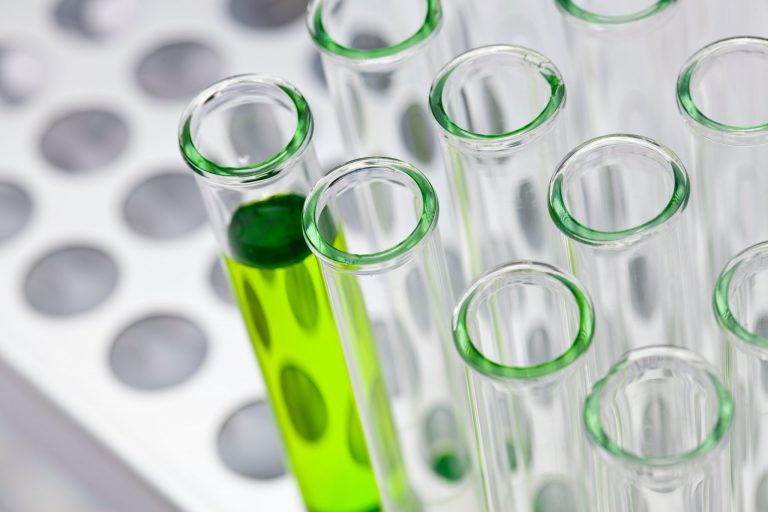This Friday, ahead of the presentation of the European Commission’s “Chemicals Strategy for Sustainability”, announced for October 2020, the European Parliament is calling for a tightening of chemicals policy and concrete ban on toxic chemicals in a resolution initiated by the Greens/EFA Group. Endocrine disruptors in cosmetics, toys and food packaging and long-lasting fluorochemicals in coatings on drinking cups, pans and clothing have to be banned. In my renewed candidacy for the European Parliament, I had announced that I would be particularly active here – also out of personal concern. It is certain that the text will be adopted this afternoon with a large majority of Christian Democrats, Socialists, Liberals, Greens and Leftists.
We call on the European Commission to tighten the European chemicals law REACH. The same standards should apply to new products and products made from recycled materials, so that no dangerous chemicals are kept in the circular economy.
The protection of human health and nature as well as the planetary boundaries are at the core of today’s resolution. In the future, all forms of pollution should be prevented or reduced to a level that is no longer harmful to human health and the environment. The upcoming EU’s Chemicals Strategy for Sustainability should also take into account resource depletion, energy use in chemical manufacturing, health, social and environmental standards, and human rights along the supply chain.
The European Parliament’s resolution shows the way forward for the European chemical industry. The chemical sector should not fare like other key European industries. The best products must continue to be produced in Europe. The ambitious, sustainable chemicals policy demanded by the European Parliament is therefore an opportunity for industry to invest in future-proof and crisis-proof technologies.
Toxic chemicals are suspected of causing cancer, can adversely affect human development, reduce the effects of vaccinations, increase the risk of infection and cholesterol and lead to a reduced birth weight of children. Parliament’s resolution comes just a few days after the German Environment Agency warned of more and more chemicals in the blood of children. For every fifth child, long-term damage from exposure to the extremely long-lived group of per- and polyfluorinated alkyl substances (“PFAS”) cannot be excluded. The parliament today calls for the use of all 4700 PFAS substances to be banned in all non-essential applications.
As part of the European Green Deal, the European Commission announced in December 2019 its ambition of a “zero pollution ambition for a toxic-free environment”. An important element of this ambition will be the “Chemicals Strategy for Sustainability”, which is to be presented by the Commission in October 2020.
MEP Sven Giegold, financial and economic policy spokesperson of the Greens/EFA group commented:
“We are calling for nothing less than a paradigm shift in the chemical industry. To protect our health and the environment, we have to start the ecological transition the chemical industry. We need a zero tolerance strategy for toxic chemicals in Europe. A strengthening of the European chemicals law is necessary. It must finally also regulate polymers such as plastic. It is unacceptable for environmentally harmful plastic to fall through the grid. The European chemicals law must become more efficient. Instead of laboriously banning one dangerous substance after the next, we should tackle substance groups as a whole. In this way, we could prevent toxic endocrine disruptors such as Bisphenol-A from being replaced by the almost identical Bisphenol-F or S. The Commission must now present criteria for sustainable chemicals and set concrete targets for reducing energy and resource consumption.
The precautionary principle and the protection of people and the environment must guide the European chemicals strategy. The zero pollution ambition benefits a toxic-free environment and healthy consumers. Sustainable chemical policy not only protects our health. It is also an opportunity for the European chemical industry to invest in future-proof and crisis-proof technologies. Clean chemistry “Made in Europe” makes European industry future-proof. Only a sustainable industry can remain competitive and secure the 1.2 million jobs in the European chemical industry.
Europe has the best chemicals legislation in the world. In practice, however, enforcement is lacking. Member States must finally implement REACH consistently to help the best products penetrate the market ”
Background:
The results of today’s vote in the European Parliament will be announced at 6 p.m.
Link to the text of the resolution (no major amendments have been adopted): https://www.europarl.europa.eu/doceo/document/B-9-2020-0222_EN.pdf
Link to the study of the German Environment Agency: https://www.umweltbundesamt.de/en/press/pressinformation/pfas-excessively-high-in-blood-of-children

